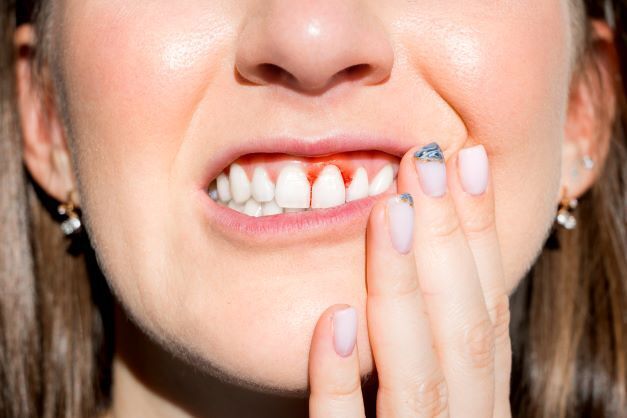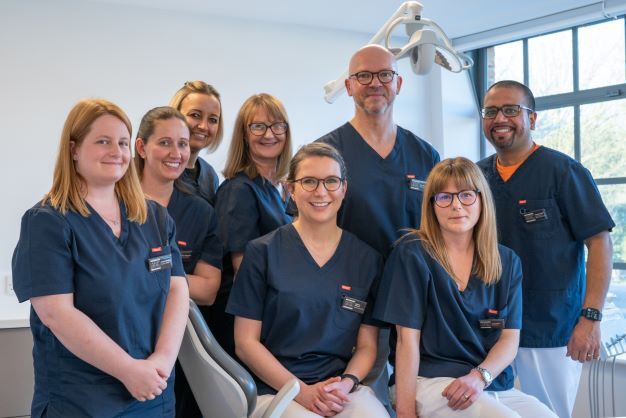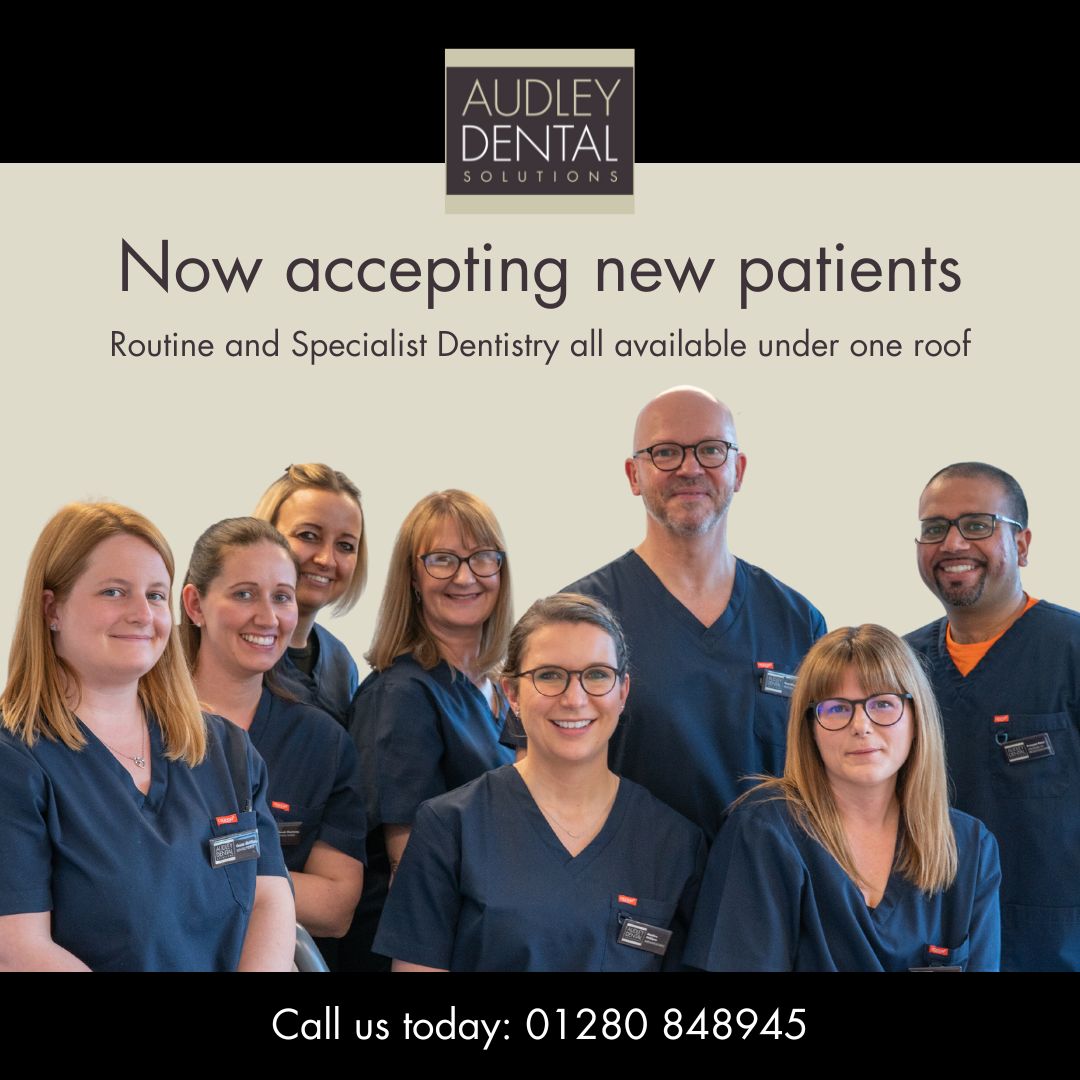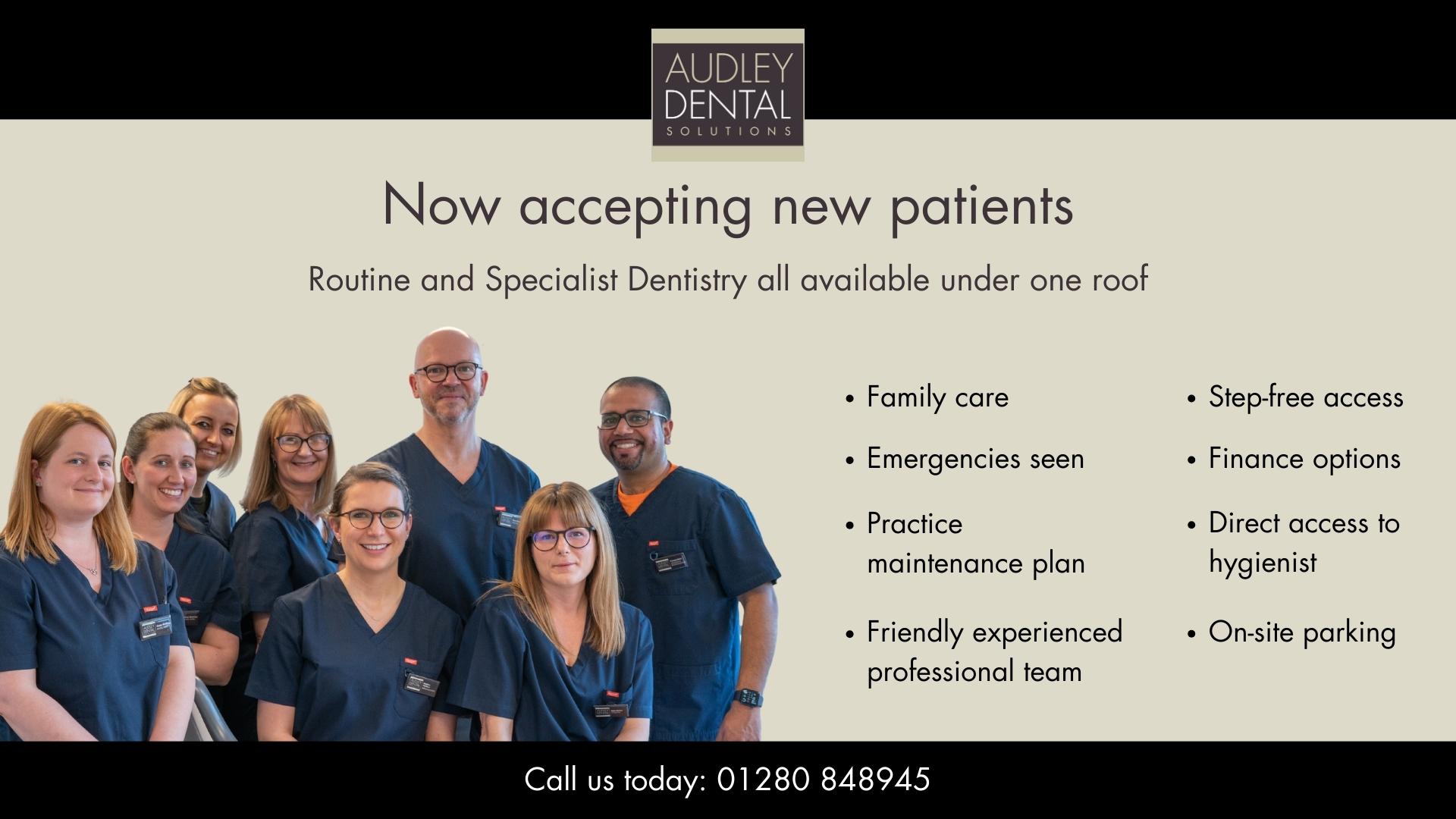As dental implant surgeons, we’re experts at replacing lost teeth, but we’re also passionate about helping people develop healthy dental habits to look after their natural teeth.
Dr Chris Wood
Dental Implant Surgeon
BDS MFGD, Dip Imp Dent (RCS Eng) FFGDP (UK) GDC No: 57428
Looking after your teeth isn’t rocket science. Most of us know that a poor diet, with little or no brushing is going to have a detrimental impact, but we also lead busy lives with huge demands on our time grabbing quick, sugary snacks or rolling into bed exhausted forgetting to brush our teeth.
Ten steps to better teeth
However, when we neglect our dental routine, that’s when the problems can start. Trust us, it’s better to invest that time now to protect your teeth, rather than spending time and money further down the line to have them replaced. In fact, almost all tooth loss and decay can be avoided if you have good, regular, oral hygiene. Without further ado, here’s the Audley 10-step guide to looking after your teeth.
#1 Protect your gums
Gum disease is one of the leading causes of tooth loss in the UK. Caused by excessive plaque build-up, it can be avoided by removing plaque through brushing twice a day and flossing regularly. However, it can also be exacerbated by outside factors which weaken the gums. Smoking, obesity and a poor diet are the three main contributors, by avoiding them you’re restoring your teeth’s defences and giving yourself the best chance of avoiding gum disease in the future. Find out more about treating gum disease.

#2 Less of a sugar rush
Sugary food and drinks can coat your teeth, encouraging the growth of bad bacteria and leaving them at risk of decay and gum disease. Not only that, chewy sweets like toffees can also pull out whole teeth or sections of a weak tooth. So, whilst we don’t want you to avoid all treats (we’re pretty partial to a toffee or two as well!) we’re just saying everything in moderation.
#3 Your dentist is your friend
You should visit your dentist every six months. It’s important to keep on top of this as gum disease is notoriously difficult to spot, with symptoms that don’t show until the later stages. Your dentist is trained to identify problems early on, so seeing them regularly gives you a head start at combatting early symptoms before they develop further.

#4 Play it safe
In some instances, it doesn’t matter how healthy your teeth are, being involved in an accident or incurring a sporting injury can result in some of your teeth being knocked out.
It can happen at any age and is something all dental practitioners regularly see, but there are steps you can take to minimise the risk. We would always recommend wearing gum shields or face protection during contact or high-risk sports. Avoid chewing or biting on hard objects such as ice cubes, the top of your pen sucking or a boiled sweet. Having said that, accidents happen and we’re always here for you if, and when, they do.
#5 No more grinding
Grinding your teeth is something most people have little control over as it mainly happens whilst they are sleeping. However, grinding, or bruxism as it's medically known, can weaken the enamel which protects your teeth. Over time, this can make them more susceptible to decay. If you suspect you may be grinding your teeth, or your dentist notices signs of it, you should consider a mouth guard which helps to prevent grinding at night. Find out more about teeth grinding and what treatments are available.
#6 More than just teeth
Did you know that 50 per cent of all the bacteria in our mouths live on our tongue? Pretty impressive right? But, as mouth bacteria is also one of the main causes of tooth loss, it’s also an important reason to make sure that as well as keeping your teeth clean you also brush your tongue. Some toothbrushes come with built-in tongue scrapers, but you can also buy them separately and remembering to use them should be a regular part of our oral hygiene routine. Regular visits to a dental hygienist help maintain good oral health by offering a professional cleaning service to protect against gum disease and tooth decay.

#7 Stub it out
This is probably one of the more obvious ones, as most of us understand that smoking is bad for you. But did you know that smoking is also one of the leading causes of tooth loss in the UK, with smokers twice as likely to have problems as non-smokers. If you’re already a smoker, then the best starting point for improving your dental care is to give up. If you haven’t started, then don’t, your body and your teeth will be forever grateful!
#8 Mealtime aftercare
Brushing or flossing after eating is a great way to look after your teeth, and if you can also use an antibacterial mouthwash that’s even better, as they help prevent decay and gum problems. If you’re out and about then chewing sugar-free gum is the next best thing to a good clean. It generates saliva, which washes away bacteria and helps to neutralise acid, keeping your teeth protected for longer.
#9 Good food
A balanced diet is just as important for your teeth as the rest of your body, and your dental health is also a great indicator of your overall health. Sticking to foods that are low in sugar and rich in calcium is something simple that can make a real difference. It’s fine to enjoy a fizzy drink or something sweet now and again, just remember to brush well afterwards.

#10 Why wait?
If you’ve read this far then you’re obviously keen to look after your teeth. There’s no better time than right now to start making positive changes to your dental health. Although tooth loss is more common in older people it’s not inevitable and developing good habits from an early age is your best line of defence.
If you’re already suffering from tooth loss, then please get in touch. We offer a free initial telephone consultation with our Implant Co-ordinator and would love to talk you through the implant process to see if it’s something that could work for you. Contact us on 01280 848945 or visit our website.

